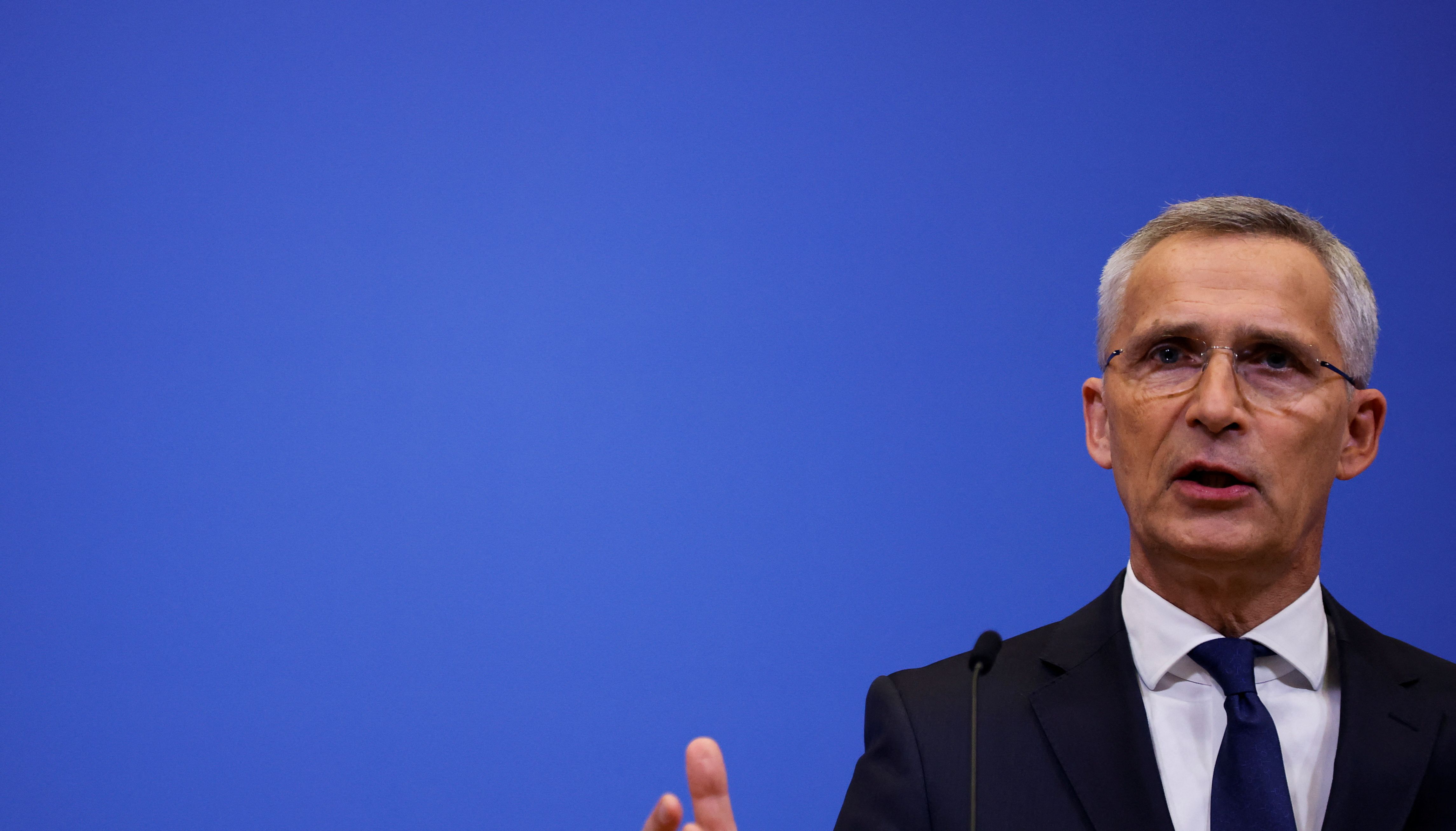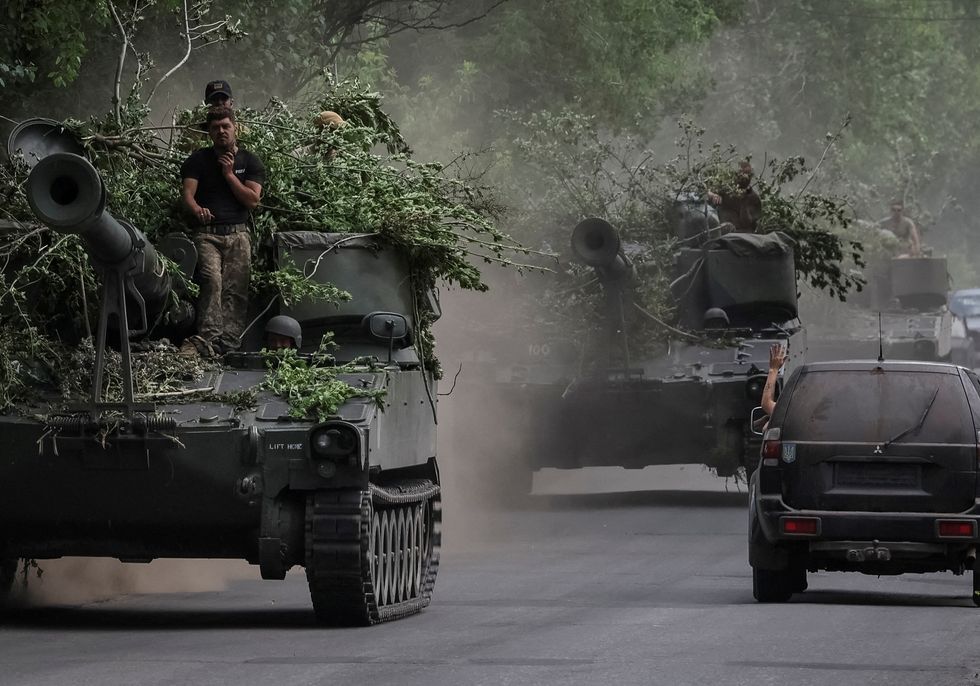Don't Miss
Most Read
Trending on GB News
NATO has announced plans to drastically increase the number of its forces at high readiness to over 300,000, following a direct threat from Russia to European security.
Secretary-General Jens Stoltenberg said "the new military blueprint" would "drastically upgrade" the bloc's eastern defences.
He announced that various NATO battlegroups in eastern Europe would be bolstered to "brigade level", sending a clear signal to deter Russia's military advances.
Mr Stoltenberg told reporters at a news conference in Brussels: "I'm confident that Moscow, President Putin, understands our collective security guarantees, understands the consequence of attacking a NATO-allied country.
NATO Secretary General Jens Stoltenberg told reporters troops would be 'drastically upgraded'
JOHANNA GERON
"It will trigger a response from the whole alliance. And to underpin that message, we are increasing the NATO presence."
The increase in NATO troops follows Russia's invasion of Ukraine in February this year
GLEB GARANICH
NATO's rapid reaction force is a combination of land, air and sea assets designed to be deployed quickly in the event of an attack. Since 2014, troop numbers have been increased from 13,000 to 40,000.
Russia's invasion of Ukraine in February this year led to many NATO forces being raised to "high readiness" status for the first time.
Battlegroups formed of member nations are now active in countries bordering Russia, including Latvia, Estonia, Lithuania and Poland.
Additional plans to deploy further forces in Bulgaria, Hungary, Romania and Slovakia have been announced.
Mr Stoltenberg's plans are set to be approved later this week at a NATO summit in Madrid.
The meeting follows the annual G7 summit, which is being held this week in Germany.
Members are also expected to alter the alliance's official stance towards Russia, which was adopted in 2010, originally describing Moscow as a "strategic partner".
Mr Stoltenberg told reporters: "I expect that allies will state clearly that Russia poses a direct threat to our security, to our values, to the rules-based international order."
Officials from the US have been informed that new "strong" language will be adopted towards China.
The move follows mounting pressure from the US and UK for a more forceful stance to combat what they see as a rising threat against the democratic freedom of Taiwan.











